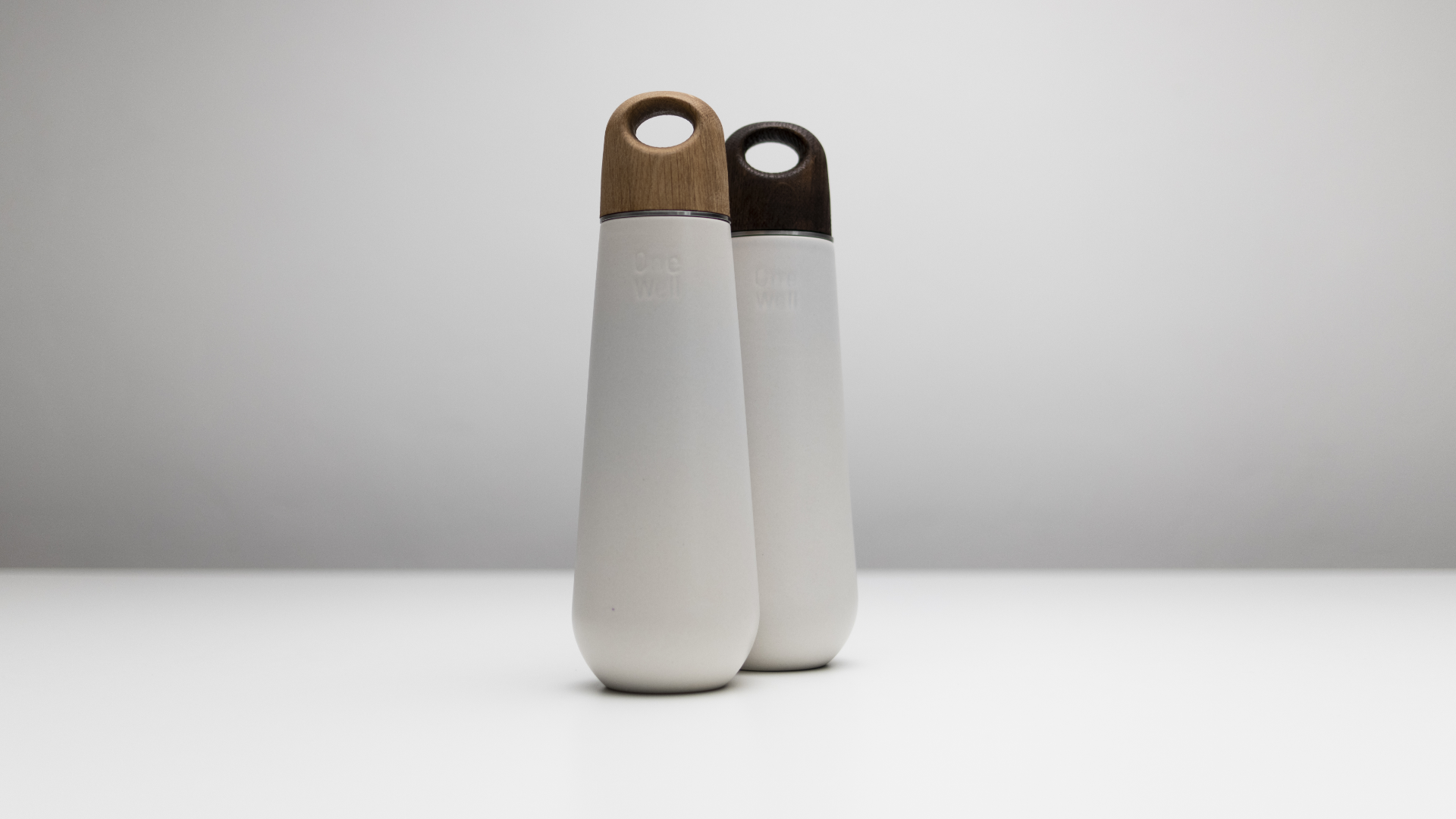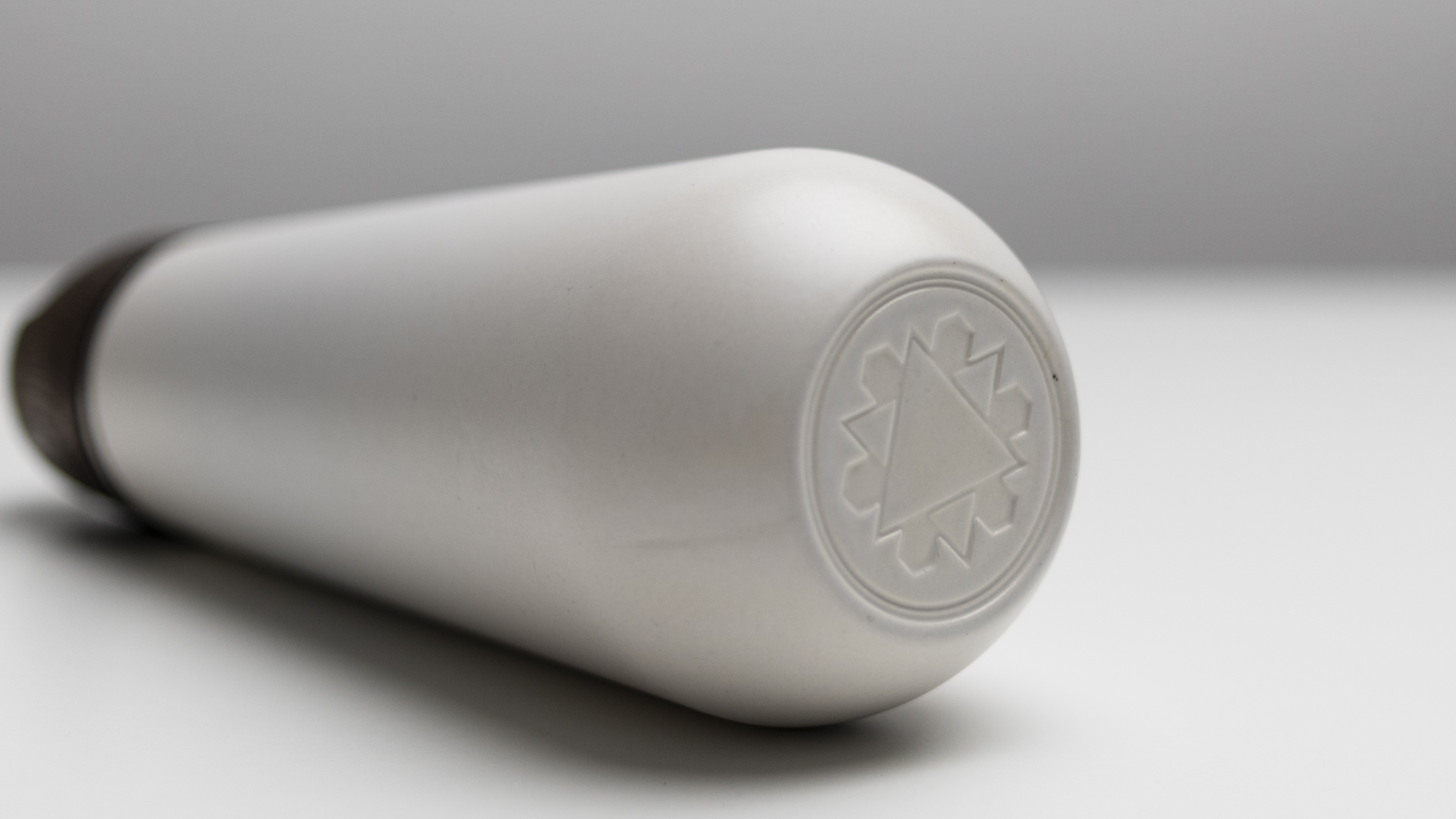OneWell has innovated a ceramic water bottle with minimal ecological footprints, and maximal human benefits.
With a raw ceramic inside, OneWell’s Universal bottle mimics the natural process of a mountain spring, where earth, clay, pebbles and stones naturally infuse the water with minerals and antioxidants.
We call it nature’s tech.


WHY WATER?
Water is essential for our physical and mental wellbeing.
It helps the body to:
WHY MINERALS?
Minerals are necessary for 3 main reasons:
Two of the most essential minerals that the body needs are calcium and magnesium, the main minerals of OneWell’s material. These two minerals are seen in abundance in the water and food of the world’s blue zones, where studies have shown that people are the healthiest, happiest and live the longest.
Read More
According to our researchers, people who are living in modern cities are usually deficient in calcium and magnesium. These minerals are crucial for physical and mental wellbeing.
Calcium assists the body with:
Magnesium assists the body with:
WHY CLAY?
Within most fields of innovation and design, the future is living materials. Living, or active materials create their own little micro verses that support healthy growth and microbial development.
Because clay contains minerals, the environment in a ceramic vessel (that is unglazed on the inside) naturally becomes alkaline. In a climate that is alkaline, bacteria, viruses and damaging microorganisms won’t grow.

WHAT IF THERE WAS A MATERIAL THAT WOULD SUPPORT, AND SUSTAIN THE WATER POURED IN IT?
WHAT IF THERE WAS A MATERIAL THAT WOULD SUPPORT, AND SUSTAIN THE WATER POURED IN IT?

WHAT IF THERE WAS A MATERIAL THAT WOULD SUPPORT, AND SUSTAIN
THE WATER POURED IN IT?
Despite knowledge about the negative impacts of plastic on nature, the sale of plastic bottles continues to increase on a daily basis. Our bodies are built from the very same material as the environment from where we once emerged, and plastic has similar negative effects on us as it has on nature. Recent studies show that microplastics damage cells and induce inflammatory and immune reactions.
Read More
Materials such as corn and potato starch, glass and metal won’t impact the water poured into the container as negatively as plastic, but they have other downsides to them.
Corn is often grown in tropical areas, resulting in devastation of the rainforest. Apart from this, OneWell’s sustainability expert argues that starches obtained from sources of food should be used as such – shortage of food in the world is a fact.
Glass is energetically highly demanding to recycle and produce. In warm climates, bacteria, viruses and parasites also tend to develop and grow inside glass containers.
Metals like stainless steel are a better option for this reason, as it takes a longer time for harmful microorganisms to develop but unfortunately, they eventually will.
Although more fragile than starches and stainless steel, ceramic vessels are undeniably the best material for water storage in terms of the impact it has on our bodies and our nature. From a sustainability perspective, there is an abundance of clay and also the specific mineral stone that OneWell is using. From a health perspective, ceramic vessels not only sustain the water poured into it, but also improves its quality.
Despite knowledge about the negative impacts of plastic on nature, the sale of plastic bottles continues to increase on a daily basis. Our bodies are built from the very same material as the environment from where we once emerged, and plastic has similar negative effects on us as it has on nature. Recent studies show that microplastics damage cells and induce inflammatory and immune reactions.
Read More
Materials such as corn and potato starch, glass and metal won’t impact the water poured into the container as negatively as plastic, but they have other downsides to them.
Corn is often grown in tropical areas, resulting in devastation of the rainforest. Apart from this, OneWell’s sustainability expert argues that starches obtained from sources of food should be used as such – shortage of food in the world is a fact.
Glass is energetically highly demanding to recycle and produce. In warm climates, bacteria, viruses and parasites also tend to develop and grow inside glass containers.
Metals like stainless steel are a better option for this reason, as it takes a longer time for harmful microorganisms to develop but unfortunately, they eventually will.
Although more fragile than starches and stainless steel, ceramic vessels are undeniably the best material for water storage in terms of the impact it has on our bodies and our nature. From a sustainability perspective, there is an abundance of clay and also the specific mineral stone that OneWell is using. From a health perspective, ceramic vessels not only sustain the water poured into it, but also improves its quality.
OUR PRODUCTS TRANSFORMS WATER THE WAY NATURE INTENDED
Besides the natural mineral content in clay, OneWell also adds a grinded mineral stone to the clay. This way, our unique material increases the mineral content of the water poured in it even more. There is no need to add extra electrolytes to your water. The blended material will itself act as a catalyst for the water it comes in contact with. It is all natural – as if you were carrying around a freshwater spring.